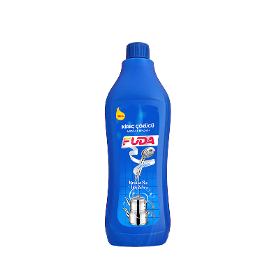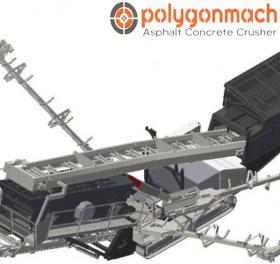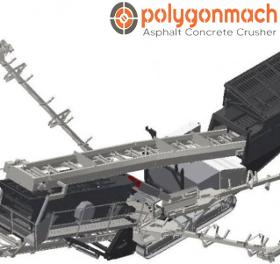- europages
- >
- COMPANIES - SUPPLIERS - SERVICE PROVIDERS
- >
- lime
Results for
Lime - Import export
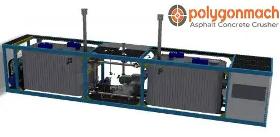
POLYGONMACH MAKINE SANAYI VE TICARET LTD STI
Turkey
A polymer modified bitumen plant is a special facility and part of the process—an essential one—in producing polymer-modified bitumen that will later be used in creating more robust asphalts for many construction applications. This process involves the addition of specific polymer additives into the bitumen for the attainment of superior performance characteristics in terms of improved durability, flexibility, and resistance to deformation. PMB is used in the construction of roads and other critical infrastructure such as airport runways, where the pavement undergoes heavy traffic, adverse weather conditions, or any other punishing environment. A Polymer Modified Bitumen Plant produces bitumen that will be stalwart enough to meet the requirements of the new, more demanding infrastructure projects. The addition of polymers to bitumen will allow the plant to come up with a product that is resistant not only to traffic pressure in high-traffic areas but also to structure wear over time.
Request for a quote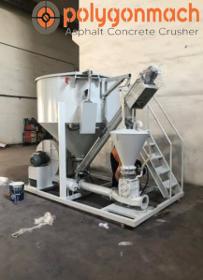
POLYGONMACH MAKINE SANAYI VE TICARET LTD STI
Turkey
The Asphalt Fiber Granule Additive System is a modern, pre-engineered component assembled in asphalt plants for the introduction of fiber granules into asphalt mix with needed precision and control. These fiber granules play a vital role in strengthening asphalts against cracking, rutting, and other distresses. Fiber granules enhance the durability and performance of asphalt pavements, allowing them to sustain increasing volumes and intensities of traffic without being affected by various harsh weather conditions. The system is critical in the manufacture of high-quality asphalt mixes qualified enough for modern infrastructure. The effect of adding fiber granules into an asphalt mix is reinforcing; much the same way rebar does in concrete. This reinforcement allows such loads to distribute further out in the pavement, minimizing the chances of damage with time.
Request for a quote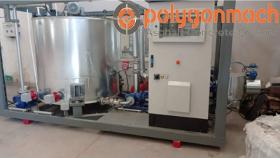
POLYGONMACH MAKINE SANAYI VE TICARET LTD STI
Turkey
Bitumen also known as asphalt is a petroleum derivative that is a black sticky and viscous liquid or semi-solid. It is mostly used to make asphalt concrete during road construction where it acts as a binder for aggregate particles. Because of its waterproofing and adhesive properties bitumen is an ideal material for constructing and maintaining roads roofs and other infrastructure. This substance is produced as a byproduct of distilling crude oil. Its strength and weather resistance make it the preferred material for paving roads and waterproofing buildings. Bitumen is used in a wide range of industries due to its many benefits which include resistance to temperature changes and long-term durability. Bitumen Emulsion To make bitumen emulsion bitumen water and extra additives are mixed together to maintain stability and performance.
Request for a quote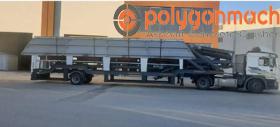
POLYGONMACH MAKINE SANAYI VE TICARET LTD STI
Turkey
A Mechanical Stabilization Plant: What Is It? In order to enhance the qualities of soil and make it more suitable for constructing infrastructure such as roads highways and airport runways the construction industry uses mechanical stabilization plants. In order to improve the strength durability and load-bearing capacity of the soil binding agents like lime cement or foamed bitumen are blended into the soil. The objective is to produce a uniform stable material that can back the building of long-lasting structures and surfaces. In situations where the native soil lacks the necessary qualities for construction mechanical stabilization plants are crucial. By modifying the properties of the soil these plants guarantee that the foundation is robust enough to support large loads and withstand environmental influences.
Request for a quote
POLYGONMACH MAKINE SANAYI VE TICARET LTD STI
Turkey
Types of Aphalt Plants With its unparalleled efficiency versatility and superior asphalt mix quality Polygonmachs 140-160 TPH mobile asphalt plant raises the bar for mobile asphalt production technology and is ideal for medium- to large-scale projects. With its cutting-edge features designed to meet the exacting specifications of asphalt production and its remarkable mobility this high-capacity plant is the ideal solution for projects requiring efficient high-quality asphalt production on the go.Aggregate Industries Asphalt Plants With an emphasis on quick deployment and simple operation for a prompt start of projects Polygonmachs 140–160 TPH mobile asphalt plant is painstakingly designed to offer a seamless user experience. Owing to its exceptional mobility it can be moved quickly and easily between locations.
Request for a quote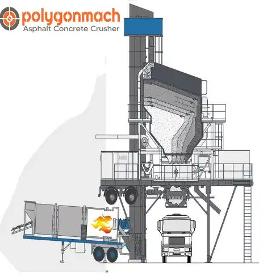
POLYGONMACH MAKINE SANAYI VE TICARET LTD STI
Turkey
Hot mix Asphalt Plant Types Hot mix asphalt plants can be configured in a variety of ways to suit the needs of different projects. The main varieties are portable mobile and stationary plants each has a special benefit depending on the size and specifications of the building projects it supports. Because of their steady setup and high production capacity stationary plants—which are fixed at a single location—are perfect for big long-term projects. On the other hand plants that are mobile or portable provide flexibility and mobility enabling them to be quickly moved to various job sites. This makes them appropriate for smaller more dynamic projects or those that need frequent site changes. This adaptability is best demonstrated by Polygonmachs mobile or portable hot mix asphalt plant. These plants are lightweight portable and quickly assemble they require little work to assemble disassemble and move.
Request for a quote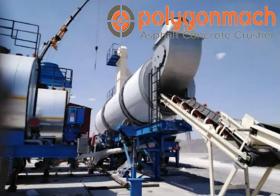
POLYGONMACH MAKINE SANAYI VE TICARET LTD STI
Turkey
Asphalt plant of the MCA Continuous Type 60-80 TPH Overview of the Product The Polygonmach MCA 60-80 Tph Continuous Type Asphalt Plant is designed for medium-sized projects requiring the production of high-quality asphalt. It distinguishes itself with an outstanding capacity-efficiency ratio blending in perfectly with both urban and rural road construction projects. Because of its emphasis on energy efficiency minimal environmental impact and operational flexibility this plant is a great option for projects involving tight space restrictions and environmental regulations. Its modular design makes transportation and installation easier greatly cutting down on the amount of time needed for project setup. This plant’s modular structure which guarantees fast assembly and disassembly and allows for easy mobility between sites was designed to meet the varied demands of different construction projects.
Request for a quote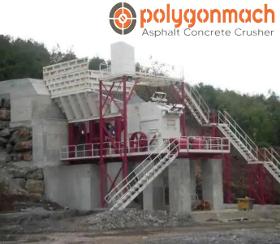
POLYGONMACH MAKINE SANAYI VE TICARET LTD STI
Turkey
A Primary Impact Crusher is a heavy-duty machine designed to crush large and tough materials into smaller sizes for further processing or use. It operates by utilizing high-speed impact forces generated by a rotating rotor fitted with blow bars or hammers. As the material is fed into the crusher, it is violently struck by the rapidly rotating rotor and impact tools, causing it to break apart into smaller pieces. The primary impact crusher is typically used in applications where large feed sizes and high reduction ratios are required, such as in mining, quarrying, and recycling operations. Its robust construction and powerful impact forces make it suitable for processing various materials, ranging from hard rock to recycled concrete and asphalt. The main purpose of a Primary Impact Crusher is to provide initial size reduction of material, producing a consistent and high-quality product. These crushers are versatile machines that can handle a wide range of materials
Request for a quote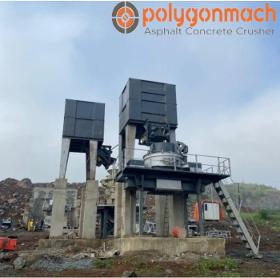
POLYGONMACH MAKINE SANAYI VE TICARET LTD STI
Turkey
Dolomyte, also called dolostone, is a sedimentary rock that contains large quantities of crushed Dolomyte mixed with small amounts of calcite and aragonite. It is thus typically formed in marine environments in which the presence of limestone has been chemically altered by magnesium-rich waters over geological time scales. As magnesium in the water reacts with calcium carbonate in the limestone some of the calcium in the limestone is replaced by magnesium. Rock formed in this manner is Dolomyte. Dolomyte rocks typically manifest in different colors, including white, grey, pink, or green, depending on the presence of impurities in the rock. Its compositions endows it with some unique properties, and for these reasons, it gets widely applied in multiple industries.
Request for a quote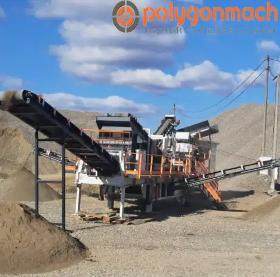
POLYGONMACH MAKINE SANAYI VE TICARET LTD STI
Turkey
What are the functions of mobile screening and crushing plants? For a variety of uses such as quarry mining and construction mobile crushing and screening plants are advanced machinery systems designed to crush and screen rocks minerals and other materials. These plants combine screening and crushing operations onto a single mobile platform providing great efficiency and flexibility. These plants are a popular option for many industrial operations because they save space and money by doing away with the need for separate crushing and screening units. Which Components Make Up Mobile Crushing and Screening Plants? 1. Feeder The feeder controls the flow of stones and minerals into the crushing equipment making it a crucial part of mobile crushing and screening plants. Feeders provide a constant and regulated material delivery avoiding jams and enabling a steady processing rate.
Request for a quote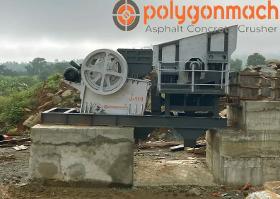
POLYGONMACH MAKINE SANAYI VE TICARET LTD STI
Turkey
A scalper screen is a very important device; industries like mining, construction, or aggregate processing use it to remove oversized or coarse materials from the feed before it reaches the primary crusher or any other processing equipment meant for the material. The major objective of the scalper screen is to pre-sort the material fed, to perfectly segregate the same by size, hence eliminating contaminants and debris that may otherwise cause interference in the trouble-free processing of the material in the successive stages. These are robust screens having large openings or bars that allow raking through the material, thereby sifting out only those correctly sized while keeping out oversized lumps or unwanted elements in the mix. By carrying out this process, Scalper Screens optimize performance and, in turn, reduce the risk of congestion, blockages, and excess wear and tear on in-line plant equipment that sits due west downstream
Request for a quote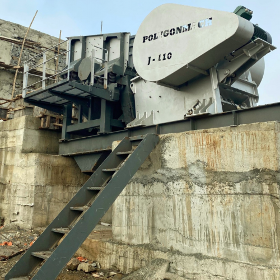
POLYGONMACH MAKINE SANAYI VE TICARET LTD STI
Turkey
Dolomyte, also called dolostone, is a sedimentary rock that contains large quantities of crushed Dolomyte mixed with small amounts of calcite and aragonite. It is thus typically formed in marine environments in which the presence of limestone has been chemically altered by magnesium-rich waters over geological time scales. As magnesium in the water reacts with calcium carbonate in the limestone some of the calcium in the limestone is replaced by magnesium. Rock formed in this manner is Dolomyte. Dolomyte rocks typically manifest in different colors, including white, grey, pink, or green, depending on the presence of impurities in the rock. Its compositions endows it with some unique properties, and for these reasons, it gets widely applied in multiple industries.
Request for a quote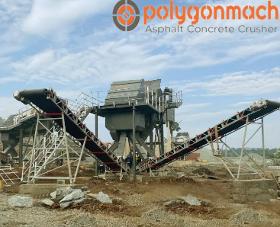
POLYGONMACH MAKINE SANAYI VE TICARET LTD STI
Turkey
Are you considering modernizing your construction practice or business with the best sand and gravel washing equipment on the market? Your search is over; your best bet at Polygonmach is here. We produce precision engineering in our sand and gravel washing plants, which appreciate and rivals the exacting requirements of the construction industry. We understand that the quality of aggregates paves the way toward a robust base for construction projects. This is why our washing plants, equipped with advanced technologies, assist in attaining efficient impurity isolation, separation of the given material, and help in delivering clean, graded sand and gravel ready to meet the needs of a variety of construction work. At Polygonmach, we don't just sell washing plants but also work out complex solutions related to your exact kind of work.
Request for a quoteDo you sell or make similar products?
Sign up to europages and have your products listed
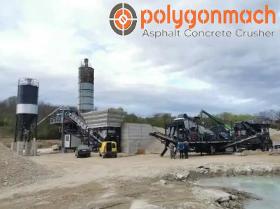
POLYGONMACH MAKINE SANAYI VE TICARET LTD STI
Turkey
Polygonmach steps up its game in the industry with the PMSV mobile crushing and screening plant, also known as the MOBILE SAND MAKING MACHINE. This state-of-the-art solution is designed to produce high-quality sand, of 0-5 mm granule size, which is renowned for its exceptionally cubic shape. The PMSV is a proud testament to good design and engineering coming together and delivering with the best of materials and in excellence of workmanship. The PMSV is able to delicately treat premade constituents for both primary and secondary operations, as well as natural stone not exceeding a size of 35 mm. The plant is capable of processing the entire basic range of materials, whether it is granite, basalt, dolomite, gabbro, or limestone, each having different gradations of hardness, giving very gratifying results. It has a PMSV capacity, which ranges from 100-250 tph, based on the hardness level of the material. The maximum feeding size is between 35-50 mm at a feeding height of 3.8 meters.
Request for a quote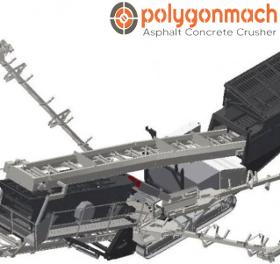
POLYGONMACH MAKINE SANAYI VE TICARET LTD STI
Turkey
Technical Specifications of Our Track Cone Crusher Our track cone crusher, model PTC200, is engineered for superior performance and efficiency in various crushing applications. Featuring the Metso HP200 cone model, it boasts a head diameter of 940 mm (37") and is powered by a robust 132 kW (200 hp) motor. The complete crusher weighs 12,160 kg (26,800 lbs), ensuring durability and stability during operation. With a feed opening of 185 mm (7") and a maximum capacity of 250 Mtph (275 Stph), this crusher is designed to handle high volumes of material efficiently. High Capacity and Efficient Crushing The PTC200 track cone crusher offers a maximum capacity of 250 Mtph (275 Stph), making it ideal for high-demand crushing projects. The large feed opening of 185 mm (7") allows for substantial material intake, ensuring smooth and continuous operation. This high capacity is crucial for meeting project deadlines and achieving operational efficiency.
Request for a quote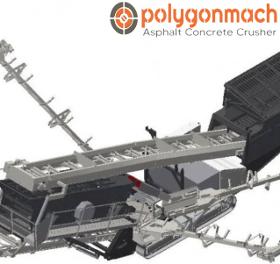
POLYGONMACH MAKINE SANAYI VE TICARET LTD STI
Turkey
Technical Specifications of Our Track Cone Crusher Scalper Screen Our track cone crusher scalper screen, model PTK144, is engineered for superior performance and efficiency in various screening applications. This advanced equipment features a hybrid drive system, utilizing motors from Volvo, Cummins, or Perkins, adhering to Tier 3-4 emissions standards. The scalper screen has a top deck size of 4,000 x 1,400 mm and a bottom deck size of 3,380 x 1,300 mm, ensuring efficient material separation. With a weight of 22,500 kg, it combines robust construction with operational flexibility, making it an ideal choice for diverse screening needs. Advanced Hybrid Drive System The PTK144 scalper screen features a state-of-the-art hybrid drive system, combining the power of diesel engines from Volvo, Cummins, or Perkins with the efficiency of electric motors. This innovative drive system ensures robust performance while reducing fuel consumption and emissions.
Request for a quote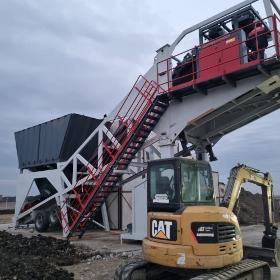
POLYGONMACH MAKINE SANAYI VE TICARET LTD STI
Turkey
The mobile portable concrete batching plant of 60 m3/h is an effective and highly usable application specially meant for on-site concrete production. They are generally meant for large commercial and infrastructure projects that require colossal volumes of concrete in a very short time length. The mobility of this plant allows easy transfers to other working job sites, which provides quick setup and starts producing concrete on demand in such a way that it will meet the needs of the project. Having aggregate storage bins, cement silos, mixer unit, and control system onboard, a 60m3/hour mobile portable batching plant gives a solid and flexible solution for construction ventures that are keen on efficient concretization capabilities. Their distinct design features of flexibility, easy mobility, and high-tech control system assure the correct batching and mixing of the materials accurately.
Request for a quote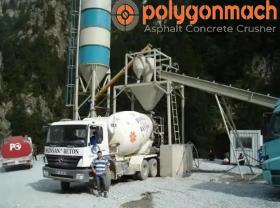
POLYGONMACH MAKINE SANAYI VE TICARET LTD STI
Turkey
A 30m3/hr dry type concrete batching plant is a compact and an effective means of concrete production that does not utilize water in the main mixing process. A 30 cubic metres per hour production plant of this type is intended to deliver moderate volumes of quality concrete mixes used for small to medium scale construction projects. Unlike the traditional wet mix plants, which use water throughout the mixing cycle, a dry type plant produces concrete by mixing dry components such as cement, aggregates, and admixtures in exact proportions. Water is introduced at the very end of the mixing, so the plant takes water in small quantities and offers a sustainable and green solution for concrete production as a whole, thus suitable for areas with little water available and tasks where water is crucial.
Request for a quote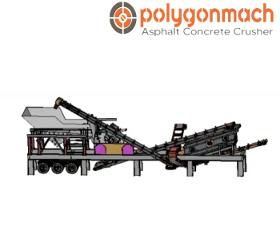
POLYGONMACH MAKINE SANAYI VE TICARET LTD STI
Turkey
A Mobile Limestone Calcier Crusher-PPI is a sort of special mobile crushing gear used for processing limestone, a sedimentary stones made mostly of calcium carbonate. It's a crusher that has the capacity of appropriately crushing and manipulating limestone right at the site, making it quite ideal for most applications that fall under construction, mining, and production of cement processes. Since this crusher is mobile, it can be moved to different sites, maximizing operational efficiency and providing flexibility in the processing of limestone to the targeted sizes and grades that are going to be used in any given project on the site without necessarily having to transport loads of materials to a processing site.Most often, the Mobile Limestone Calcier Crusher-PPI is paired with a primary crusher for course crushing and a secondary crusher for further processing of the crushed limestone.This equipment is essential in breaking the large limestone rocks into smaller sizes to meet consid
Request for a quote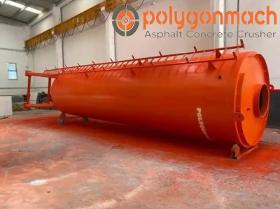
POLYGONMACH MAKINE SANAYI VE TICARET LTD STI
Turkey
A 120-ton Welded Type Cement Silo is a giant container in the shape of cylinder uprightness; it is used in holding cement basically in huge bulk quantities. These are developed out of very steel plates with the welded type, which gives the necessary robustness and strength with respect to the stored material weight on it. The welded design ensures that the silo is air and water-tight, preventing moisture and foreign materials from affecting the quality of the cement. Such silos are typically used in construction projects, where an uninterrupted and reliable supply of the material is to be maintained at all times. Large capacity of 120 tons eases bulk storage of huge quantities of cement at construction sites, eliminating multiple deliveries and hence sustaining an uninterrupted work process. Welded construction further eases their means of installation and maintenance; hence, the silos are best in their simplest and least costly form to meet cement storage needs.
Request for a quote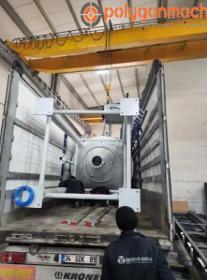
POLYGONMACH MAKINE SANAYI VE TICARET LTD STI
Turkey
A 60 tons welded type cement silo is a big storage container integrated to execute the specialty of maintaining and producing a large amount of bulk cement. Mainly, these are integrated at construction sites and concrete manufacturing plants to ensure the appropriate and continuous supply of cement in various types of building projects. Mostly made up of steel, welded, and cylindrically shaped with a bottom cone, the cement silos are strong and well-built to bear the weight and pressure exerted by the stored cement. These 60-ton welded-type cement silos are best used for cement storage in huge quantities, and at the same time, the controlled gauge pre-fabrication of cement is needed when producing concrete. This makes it possible to store huge amounts of cement—60 tons—which in turn lowers the frequency of refills and optimizes the logistics cost of cement transportation. Silos are welded on the structural integrity and to minimize insemination and contamination chances.
Request for a quote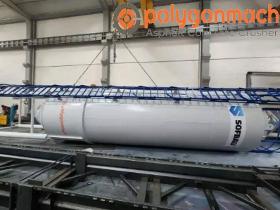
POLYGONMACH MAKINE SANAYI VE TICARET LTD STI
Turkey
A 100 tons Welded Type Cement Silo is a large vessel designed for storing cement in bulk. This silo type is fabricated from welded steel sheets that provide strength and durability to the vessel, allowing it to bear the weight of the stored material and act against the external environment. Its substantial storage capacity, reaching 100 tons, enables it to handle and distribute cement effectively in many industrial and construction environments. Operational, a 100 tons Welded Type Cement Silo receives cement through pneumatic conveying systems or another loading mechanism into the silo. The cement then settles down at the bottom of the silo, consuming the available storage. In applications that require cement for production or construction, the silo's discharge system, usually screw conveyors or airslide mechanisms, provides controlled withdrawal from the bottom. This will ensure a constant supply of cement while keeping famous issues like clogging or material bridging to a minimum.
Request for a quote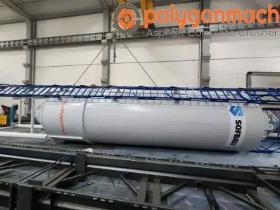
POLYGONMACH MAKINE SANAYI VE TICARET LTD STI
Turkey
The 50-ton welded type cement silo could potentially be a very large structure for concrete, cement. Those are usually applied and used at construct lines, concrete batch plants, and other industrial projects to store in addition to dispensing such objects. All-welded constancy in design guarantees their permanence and stability in long-term use with different ambient environments. The 50-ton capacity of the silo means the ability to provide a quantity that is possible to be on site well ahead of time to have the requirements of the construction met without delay. Even though the design is welded, the strength it gives is considerable enough for resisting harsh weather and, most importantly, ensures the cements stored therein are maintained safe and ready for fitting at desired times. To sum up, a 50-ton Welded Type Cement Silo- a ready and perfect solution for the storage of cement in required quantities for an ongoing construction project.
Request for a quote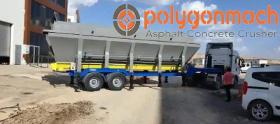
POLYGONMACH MAKINE SANAYI VE TICARET LTD STI
Turkey
A 100 tons horizontal type cement silo is a type of a structure constructed for holding a larger amount of cement in a horizontal way. These kinds of silos are used in construction work, concrete production plants, and a few other industrial applications that require storing large quantities of cement. The 100-ton capacity provides ample storage space for cement, ensuring that a constant and sufficient supply is maintained for construction. This silo has a horizontal layout, and within the small space it occupies, it serves its loading and offloading operation with a lot of ease. Considered to have such a big capacity, the Horizontal Type Cement Silo stands at 100 tons, since that is what the most silos available in the market are offering.
Request for a quoteResults for
Lime - Import exportNumber of results
136 ProductsCompany type
